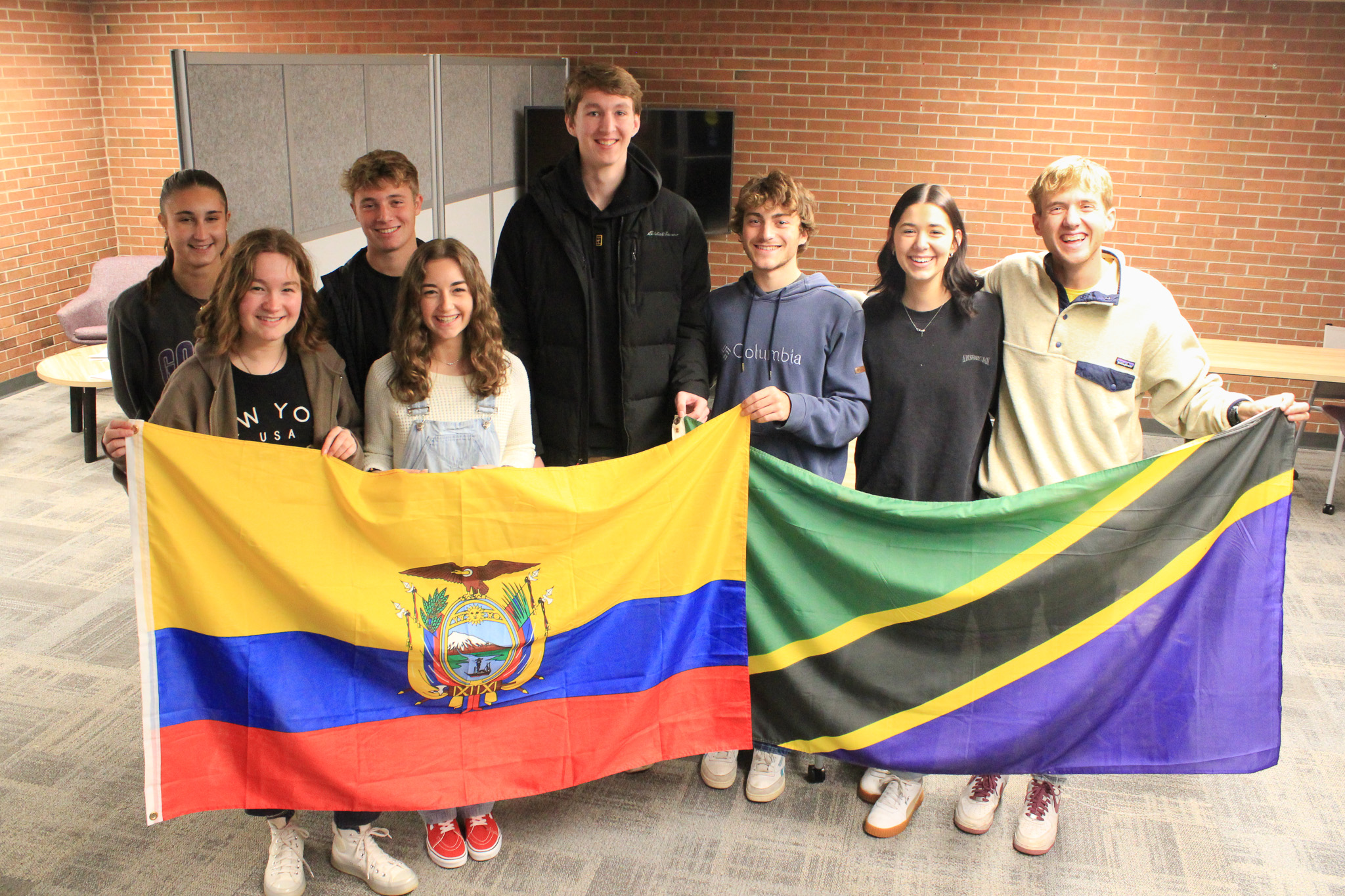In 1983, at the height of Goshen College’s Study Service Term program, 82% of that year’s graduating class went on a semester SST and GC ran three to four programs each semester. Now, this past academic year, only 36 total students went on the three semester programs that were offered, which were Ecuador (twice) and Indonesia.
A multitude of factors are at play in why exactly the numbers have drastically dropped so much — such as price, athletic responsibilities and overall appeal — but Kendra Yoder, co-chair of the Global Engagement Office, said that after attending a global education conference a few weeks ago, she realized that “the trends we’re seeing here are trends we’re seeing across all [college] global education programs.”However, there have been some GC specific problems that have been suggested. For one, Yoder says that in her observations, “it’s harder to convince people that they should want to step outside of their comfort zone or see or live or get to know people in another culture. It’s just a different mentality.”
Sadie Brenneman, a senior journalism major on the women’s volleyball team, said that the commitment to athletics was a barrier to her considering a semester-long program.
“It sort of felt like if you left for a semester, you weren’t necessarily committed to the team,” she said. “I still feel that way. I’ve felt that way all of my four years, regardless of the coach, and so it’s been hard for me.”
Yoder echoed this sentiment, saying “I definitely think athletes have significant barriers to going, and those students are often coming with a priority on their sport, obviously, and SST becomes a challenge instead of an added benefit to their experience.”
However, Jerrell Ross Richer, co-chair of the Global Engagement office shared ways in which the office is trying to make SST more accessible for student athletes —with a particular partnership at the moment with the baseball team, since tournament play typically extends past the May 1 start date of most SST May Terms.
“We’re going to do kind of a late May. It’ll still be the same amount of time we have been working with finding faculty members and finding locations for that,” Ross Richer said.
One of the reasons that this program has successfully moved into the next phase is due to the support of head coach Brad Stoltzfus, who went on SST himself during his time at GC. “He wants his baseball players to be able to do SST,” Ross Richer said. “So we’ve just found that we need to be innovative in developing ways to do SST that work for people.”
Another factor that may hold students back from participating in the additional cost, which can be especially difficult for commuter students, as their room and board is in that extra cost. However, Alia Najera, a junior elementary education and TESOL major who traveled to Ecuador last spring, explained that for her, SST was worth the extra cost.
“It gave me the opportunity to be independent, because as a commuter, I’m already living with my parents, so I don’t have the chance to be on my own on campus like residential students,” Najera said. “I got to learn so much. I feel like it opened so many doors for me, and now I know what I want for my future.”
Najera also spoke on how the experience was valuable to her as a native Spanish speaker, so she wasn’t there to learn Spanish like many other students. “I was able to build a lot more stronger connections with everyone, like my classmates, because they needed help with Spanish and also with my host family — we are very close and we still keep in touch.”
Though numbers may be down at the moment, the SST office is still hopeful that their upcoming semesters will fill up with interested students. Yoder said that now is the perfect time to start exploring SST options — “I just want to really encourage people to sign up now if you have any interest, it doesn’t commit you to the experience, but if you have any interest, sign up now for those programs, because we’re going to be needing to make those decisions.”
“The problem is some students talk about going on a certain unit, and we’ll hear about it and then look and see that they’re not on the list,” Ross Richer said. “So I think students are a little reluctant to plan too far ahead, but if they don’t get on the list, their lists aren’t long enough, and then we have to cancel these units.”
Currently still open for registration is Ecuador this summer, as well as next fall, spring and summer, Navajo-Hopi this summer, Indonesia next spring, and Senegal next summer.



